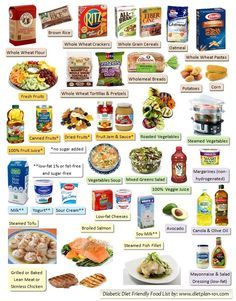Managing diabetes involves making thoughtful choices when it comes to nutrition. People living with diabetes need to pay attention to their food choices, portion sizes, and timing of meals to maintain stable blood sugar levels. In this article, we will discuss some important guidelines and strategies for maintaining a diabetes-friendly diet.
Choose Complex Carbohydrates
Carbohydrates have the most significant impact on blood sugar levels. It is essential for people with diabetes to choose carbohydrates that are minimally processed and high in fiber. These complex carbohydrates include whole grains, legumes, fruits, and vegetables. They provide essential nutrients and prevent rapid blood sugar spikes.
Monitor Portion Sizes
Controlling portion sizes is vital for managing diabetes. By keeping track of the amount of food consumed, individuals can monitor their carbohydrate intake and maintain stable blood sugar levels. Using measuring cups and a food scale can help accurately assess portion sizes, especially for foods with high carbohydrate content.
Include Lean Proteins
Proteins play a crucial role in a balanced diabetes-friendly diet. Including lean proteins such as skinless poultry, fish, legumes, and tofu can promote fullness and prevent overeating. It is important to avoid high-fat proteins such as processed meats and fatty cuts of beef, as they can contribute to weight gain and negatively affect blood sugar control.
Limit Added Sugars
Added sugars can quickly raise blood sugar levels and provide little nutritional value. It is essential to limit the consumption of sugary beverages, processed snacks, and desserts. Instead, opt for naturally sweetened foods like fruits, and read food labels carefully to identify hidden sugars in packaged products.
Healthy Fats
While fats should be consumed in moderation, certain types of fats can have a positive impact on blood sugar control. Unsaturated fats, found in foods like olive oil, avocados, and nuts, can improve insulin sensitivity and reduce the risk of heart disease. On the other hand, saturated and trans fats, commonly found in fried foods and baked goods, should be limited as they can contribute to inflammation and insulin resistance.
Create a Balanced Plate
A well-balanced plate is the key to a diabetes-friendly meal. Dividing the plate into portions can help ensure a healthy balance of nutrients. Fill half of the plate with non-starchy vegetables like broccoli or spinach. Then, allocate a quarter of the plate to lean proteins such as chicken or fish. The final quarter should contain whole grains or starchy vegetables like brown rice or sweet potatoes.
Stay Hydrated
Adequate hydration is essential for everyone, especially individuals with diabetes. Consuming enough water throughout the day helps regulate blood sugar levels, supports kidney function, and aids digestion. To stay hydrated, carry a water bottle with you and sip on water regularly. Aim to drink at least 8 cups of fluid per day, preferably water or unsweetened beverages.
Consult a Registered Dietitian
Individuals with diabetes have unique nutrition needs, and consulting a registered dietitian can be immensely beneficial. A dietitian can provide personalized advice, meal planning, and ongoing support to help manage diabetes effectively. They can also assist with carbohydrate counting, blood sugar monitoring, and addressing any specific dietary concerns or restrictions.
Conclusion
Eating a diabetes-friendly diet is essential for managing blood sugar levels and maintaining overall health. By making wise food choices, monitoring portion sizes, and staying hydrated, individuals with diabetes can lead a healthy and fulfilling life. Remember to consult a registered dietitian for personalized guidance and support in managing diabetes through nutrition.









